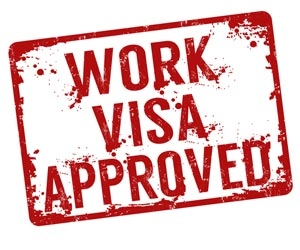Working in the EU Without Visas or Work Permits
Before the formation of the European Union, it was much, much easier to simply head over to Europe on a tourist visa and find work under the table. For North Americans today, it is much harder to do this; for some countries it is pretty much impossible.
The major problem is that for most EU countries you will need to be sponsored by a company for a work visa; this essentially means you already need a job lined up to get the visa. However, there are still opportunities for getting a legal job once you are already in Europe or even finding work illegally.

Keep in mind, however, that the inclusion of East European countries into the EU means that there are many, many more EU citizens that can work all over Europe. With that many legal workers now available, more countries that have been easy going about work visas in the past, such as Spain, are really starting to crack down on illegal workers.
Countries such as Austria, Switzerland, and the Scandinavian countries are pretty much no go for simply heading over to look for work. These countries are hard on illegal workers, and are very keen to hire local EU people if at all possible.
For Germany and France, teaching is a great job for simply heading over on a Schengen visa and looking for work once you are there. Both countries allow you to get the necessary work permit while you are already in the country.
The UK, Spain, and Italy are still possibilities for working illegally. In the UK, there are still under the table pub jobs, while you can always find work as a summer tour guide in the larger cities in Italy. And Spain will still hire teachers without a work visa, especially in September.
In most of Eastern Europe, there are still plenty of opportunities to teach English and it is possible to simply head over and start looking for work.
Because native English speakers are still somewhat in demand, you will probably also be able to get away with working illegally, especially if you simply teach private lessons.
For most countries, a much better bet is to arrange to take a language course in the country and then get a student visa. Not only will the student visa allow you to work at least part time at a job that you can find once you are in Europe, it will allow you to absorb a little bit more of the culture.

